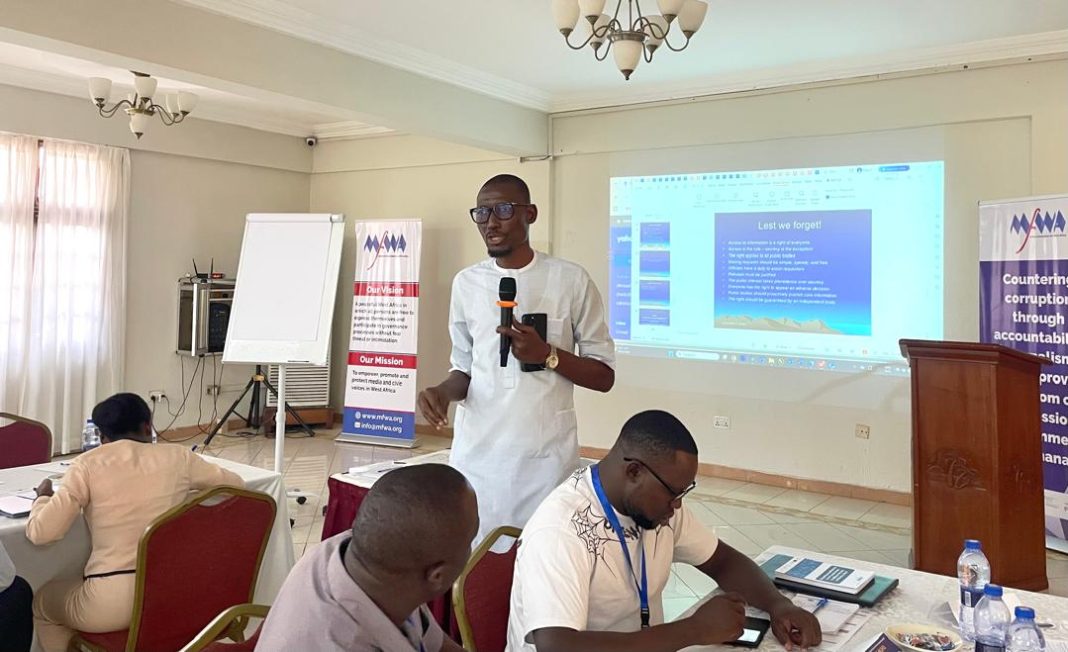A lecturer at the Ghana Institute of Journalism (GIJ) and private legal practitioner, Lawyer Zakaria Tanko Musah, Esq. has reminded journalists that the Right to Information (RTI) law is designed to enhance their work rather than replace existing methods of information gathering.
Speaking to about thirty journalists during a training workshop on “The Use of the RTI Law in Journalism” at the Coconut Grove Hotel in Accra, Lawyer Tanko Musah emphasized that while the RTI law is a valuable tool for journalists, it is not the only means of accessing information. He encouraged participants to explore alternative credible sources when necessary, as long as the information obtained is accurate and verifiable.
“RTI has come to enhance your work, not to change it. If you have other means to get your information quicker, you can use it—just make sure it is accurate,” he advised.
He further explained that the RTI law is not reserved for journalists alone but serves the broader public interest, allowing all citizens to seek access to public information. However, he urged journalists to be mindful of the timelines involved in the RTI application process, as obtaining responses could take time.
“RTI is not for journalists alone; it’s for everyone. If you start the process, be ready for the timeline involved,” he cautioned.
Lawyer Tanko Musah also described the RTI law as a “double-edged sword” for journalists, explaining that while it provides a legitimate pathway to official information, it also demands responsibility and accuracy in reporting.
“The RTI is a double-edged sword for journalists,” he noted. “While it gives you access to information, if not handled responsibly, it can be problematic. Inaccurate publication of information acquired through RTI can cause serious issues, so verification from other credible sources is essential.”
The training was part of an initiative led by the Media Foundation for West Africa (MFWA) and funded by the German Development Cooperation (GIZ) under the Participation, Accountability, Integrity for a Resilient Democracy (PAIReD) program. The program is commissioned by the German Federal Ministry for Economic Cooperation and Development (BMZ), co-financed by the European Union and the Swiss State Secretariat for Economic Affairs (SECO), and implemented in collaboration with Ghana’s Ministry of Finance.
Source: a1radioonline.com|101.1|Gifty Eyram Kudiador|Accra


